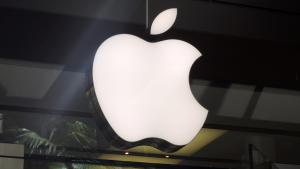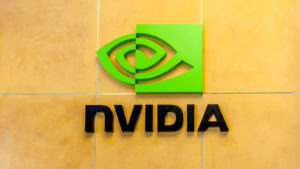Well it had to end sometime. The end of 2021 into 2022 was a brutal period for tech stocks. And it may not be a popular opinion, but many of these stocks needed to have their valuations trimmed.
However, as is usually the case with market corrections there is always an overreaction. One of my investment axioms is that good stocks don’t suddenly become bad. And that means now is the time to begin looking for quality stocks that are on sale.
The market has plenty to digest. Inflation is likely to remain a problem. Interest rates may be on the rise. And it’s a midterm election year which has historically been a harbinger of tough sledding for equities in the run-up to the election.
In other words, there is plenty of reason to believe it may not be completely smooth sailing for tech stocks. That’s why it’s important that you’re looking for quality names. Fortunately, you have options and that’s the focus of this article. Here are 7 tech stocks that are bouncing back and ready to deliver solid gains.
- Apple (NASDAQ:AAPL)
- Microsoft (NASDAQ:MSFT)
- Nvidia (NASDAQ:NVDA)
- Roblox (NYSE:RBLX)
- Unity Software (NYSE:U)
- Fortinet (NASDAQ:FTNT)
- JFrog (NASDAQ:FROG)
7 Tech Stocks: Apple (AAPL)

First on this list of tech stocks to buy is Apple stock. It’s a company that is known for its ubiquitous iPhone. But with growth in its other verticals such as Services and, most recently, its own streaming service, Apple TV+. Apple has become a “sum of its parts” stock. By that I mean that if one area is down there are other ways for the company to generate revenue. And when all the verticals are working together, the sky’s the limit.
The strength of AAPL stock was on display during the recent tech sell-off. The stock only dropped about 12% and has already recovered much of that loss.
Another reason to own Apple is that it’s one of a handful of companies with a market capitalization of over $1 trillion dollars. That means that if investors who are investing in index funds that track the S&P 500 or Nasdaq 100 are almost certainly investing in Apple. With that in mind, it simply makes sense to own shares of this tech giant as part of a growth portfolio.
Microsoft (MSFT)

From one trillion-dollar company to another, the next of the tech stocks to buy is Microsoft. At approximately $2.3 trillion Microsoft is second to, you guessed it, Apple. And like Apple, Microsoft is another “sum of its parts” stock. MSFT stock is down approximately 10% in 2022 and from peak to trough the stock fell about 9%. Clearly investors aren’t bailing on the stock.
The company thrived during the pandemic as its collaboration software, Teams, enabled remote work. The pandemic also showcased Microsoft’s strength in the gaming sector.
Not to put any of that aside, but Microsoft can integrate its cybersecurity tools into its Office 365 software which is already based in the cloud. And this is contributing significant revenue (approximately $10 billion of revenue) to Microsoft’s top line. And due to the company’s massive size, it will be able to grow through acquisition as it did in July 2021 when it acquired RiskIQ for approximately $500 million.
7 Tech Stocks: Nvidia (NVDA)

I’ll concede that NVDA stock has endured a pretty stiff sell-off. In fact NVDA stock entered what would have been considered a bear market. That’s a consequence of a share price that went up as much in the two months ending in November 2021 as it did in the prior 12 months combined.
The fundamental argument doesn’t get much better. In addition to posting strong earnings and revenue the company continues to increase its free cash flow. The only thing that could potentially slow down the company’s growth is if the economy were to get significantly worse. However, with demand coming from every sector in which the company does business, Nvidia looks like about as certain of a bet as you can get.
Plus, walking away from its planned acquisition of ARM may actually be addition by subtraction. The move was putting the company under needless scrutiny. And that seems to be the general reaction of investors as the stock is up about 5% since the announcement.
Roblox (RBLX)

In the universe of emerging “metaverse stocks” Roblox deserves strong consideration. However, investors have had to endure a roller coaster of price action.
RBLX stock went public in March 2021 and by June it had jumped over 40%. However, by October it had given up most of those gains. But just as quickly the stock soared 72%. The ride wasn’t over. Since mid-November the stock dropped 57% and is still down 50% from that all-time high.
The reality is there may be more volatility on the way. However, in the case of Roblox it appears as if it will be worth the wait.
During Super Bowl week, the National Football League (NFL) announced its partnership with Roblox to expand its metaverse presence with the launch of NFL Tycoon. The game plays to Roblox’s strengths by allowing gamers to “build, play and learn an NFL-centered world based on Roblox’s popular tycoon and simulator genres.”
7 Tech Stocks: Unity Software (U)

Another stock that is well off its 2021 high is Unity Software. U stock is down 42% from last November and that’s even after a rally of 17% after it posted strong quarterly and full-year earnings on Feb. 3. Even after the earnings report, three analysts have lowered their price target for Unity.
This is somewhat surprising since Unity Software is making a habit of not only beating earnings estimates, but beating them by a comfortable margin. And in this earnings report, the company gave investors reason to believe that it’s solutions are for more than just gaming.
With that said, the company is still not profitable. However, on the earnings call management said it expressed their belief that revenue growth can be at or above 30% over the long term. And with that in mind, the company expects to break even (based on non-GAAP metrics) sometime in fiscal year 2023.
Fortinet (FTNT)

Unlike a company like Microsoft, Fortinet is a pure play cybersecurity stock. And in my opinion, one of the company’s greatest strengths is it delivers an easily understandable benefit to consumers.
The pandemic will be remembered as a time when paradigms shifted. That may be true in some cases. However, I think in most cases it accelerated trends that were already in motion. One thing is certain it increased the time that we spend online. And when we’re online even on what we believe are secure networks, our information and browsing habits are compromised. Fortinet provides virtual private network (VPN) services which are quickly becoming a best practice for protecting our own cybersecurity.
FTNT stock has been mostly flat for 2022 but that’s after falling over 25% since the end of December. That means investors didn’t need for the stock to go on sale anymore. A number of analysts have boosted their price target for the stock since the company reported earnings in early February. That means there should be plenty of room for the stock to grow if you don’t already have a position.
7 Tech Stocks: JFrog (FROG)

In articles like these I like to give investors options. That’s why I don’t use phrases like “the 7 best stocks.” There are different investing styles and I try to give a little variety. With that in mind, the last of the tech stocks on my list is JFrog. With a current market cap of around $2.5 billion, JFrog just barely cracks the category of a mid-cap stock. But for all intents and purposes it’s a small-cap stock and that can come with volatility.
One of the bullish narratives for FROG stock centers around the software company’s launch of the latest version of its Xray product. One of the key features of this iteration will be the advanced scan that offers binary as opposed to static analysis which significantly increases accuracy while allowing JFrog customers to be able to think like an attacker.
FROG stock has dropped nearly 40% from its closing price on November 5, 2021. But the stock is beginning to recover and analysts give the stock a n average $37.6 price target which gives it an 48% upside.
On the date of publication, Chris Markoch did not have (either directly or indirectly) any positions in the securities mentioned in this article. The opinions expressed in this article are those of the writer, subject to the InvestorPlace.com Publishing Guidelines.
Chris Markoch is a freelance financial copywriter who has been covering the market for eight years. He has been writing for InvestorPlace since 2019.
